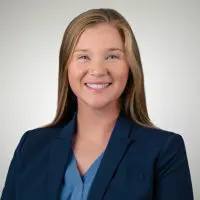Publication
The Ninth Circuit Holds That the FCA’s First-To-File Rule Is Not Jurisdictional: Implications for Practitioners
Overturning its own precedent, the Ninth Circuit recently ruled that the “first-to-file” provision in the False Claims Act (FCA) is not jurisdictional. This ruling has wide-ranging implications for companies defending themselves against multiple, repetitive, FCA actions.
The first-to-file rule (which is also referred to as the “first-to-file bar”) states that: “When a person brings an action under [the FCA], no person other than the Government may intervene or bring a related action based on the facts underlying the pending action.”1 Put simply, this rule provides that once a qui tam realtor files an FCA action, no other party — except the United States — can intervene or file a second FCA action based on the same underlying facts.
For years, the Ninth Circuit considered the first-to-file rule “jurisdictional.” Practically speaking, this meant that defendants in FCA actions could move to dismiss actions early in the case under Federal Rule of Civil Procedure 12(b)(1). Under Rule 12(b)(1), the burden was on the qui tam realtor to prove that the first-to-file rule did not apply, and defendants were free to introduce evidence to counter the qui tam realtor’s allegations.
However, the Ninth Circuit reversed course in Marcia Stein, et al v. Kaiser Foundation Health Plan, Inc., et al., finding that the first-to-file rule is not jurisdictional. While this ruling brings the Ninth Circuit into line with several other Circuits and is more consistent with recent Supreme Court precedent on the FCA,2 it effectively makes it more difficult to dismiss FCA actions on first-to-file grounds. This is because now, FCA defendants will have to move to dismiss under Rule 12(b)(6) — which places the burden on the defendant and assumes the truth of all the well-pled factual allegations in the Complaint.
It is likely that the U.S. Supreme Court will weigh on the question of whether the first-to-file rule is jurisdictional in the near future. There is now a circuit split: the Ninth, Sixth, First, Second, and DC have all held that the rule is not jurisdictional, while the Fourth, Fifth, and Tenth hold that the rule is jurisdictional. Jurisdiction has also been a hot issue at the Court lately; just last year, SCOTUS attempted to “bring some discipline” to the overly expansive use of this term and has instructed lower courts that a statutory bar is jurisdictional only if congress clearly states that it is.3
In recent years, the manner in which the FCA is enforced has changed significantly. However, what remains is the importance of having a fulsome compliance program when dealing with government programs, whether it is a practitioner utilizing the Medicare or Tricare requirements, or any other government contractor. A compliance program should include guidance from experienced regulatory counsel. The program should also include regular training of employees and auditing of transactions. Furthermore, a compliance program should have a hotline that allows third parties to report concerns rather than relying only on government reporting programs. The ability of a practitioner or government contractor to address issues as they arise, including by potentially self-reporting to the government agency, is key.
Footnotes
-
31 U.S.C. § 3730(b)(5).
-
We have analyzed the implications of the Supreme Court’s recent overhaul of the FCA in our articles, “Post-Argument Review: What Government Contractors Can Do To Ready Themselves for Landmark Supreme Court Decision in FCA Cases”, “Supreme Court Sides with Government (and Whistleblowers) in Preserving Relevance of Subjective Intent in FCA Cases”, and “Federal Government’s Broad Dismissal Authority in FCA Cases Confirmed in Polansky Ruling.”
-
Santos-Zacaria v. Garland, 598 U.S. 411, 416 (2023).
About Snell & Wilmer
Founded in 1938, Snell & Wilmer is a full-service business law firm with more than 500 attorneys practicing in 17 locations throughout the United States and in Mexico, including Los Angeles, Orange County, Palo Alto and San Diego, California; Phoenix and Tucson, Arizona; Denver, Colorado; Washington, D.C.; Boise, Idaho; Las Vegas and Reno, Nevada; Albuquerque, New Mexico; Portland, Oregon; Dallas, Texas; Salt Lake City, Utah; Seattle, Washington; and Los Cabos, Mexico. The firm represents clients ranging from large, publicly traded corporations to small businesses, individuals and entrepreneurs. For more information, visit swlaw.com.




